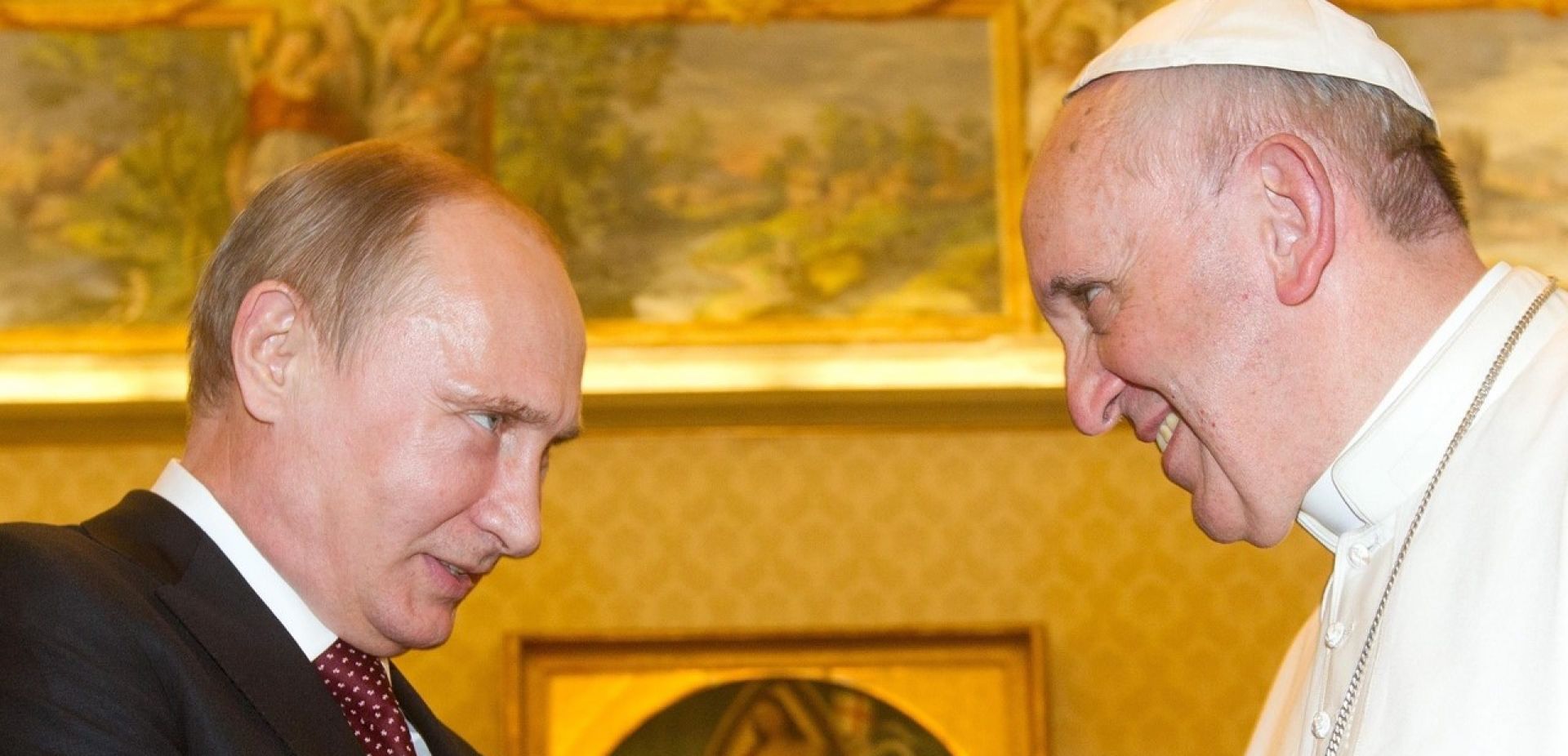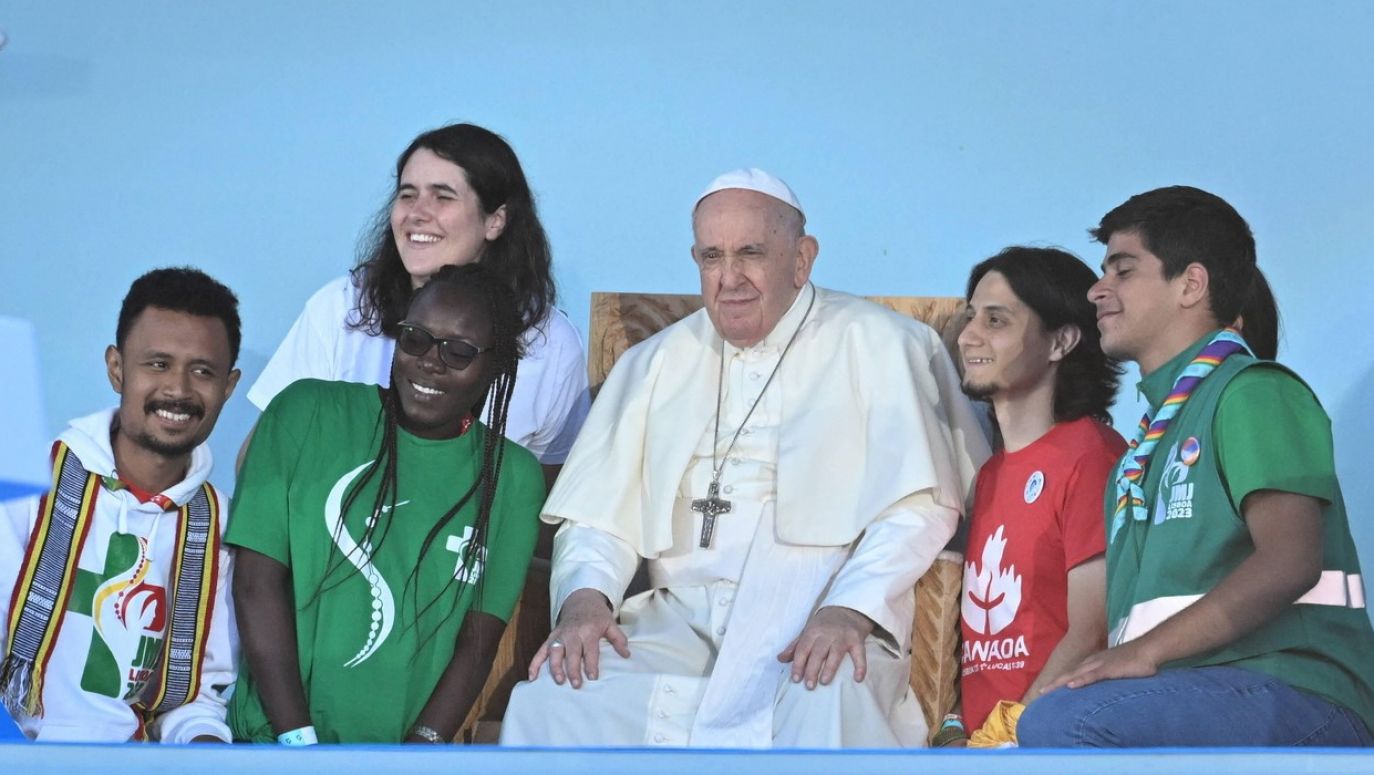However, it was not only in Poland that the quoted passage from Francis' speech provoked understandably angry reactions. The pope's statement was met with critical comments even among some German intellectuals. Among other things, accusations were made that Francis had no idea of the significance of Peter I and Catherine II for Russian imperial self-consciousness.
For obvious reasons, however, the position of Archbishop Sviatoslav Shevchuk, head of the Ukrainian Greek Catholic Church, deserves particular attention. Let us recall that throughout history, it was members of this faith community, which recognises the primacy of the papacy, who were persecuted first by the tsarist regime and then by the Soviets. Archbishop Shevchuk did not leave a trace over the words of Francis, to whom, after all, he is subordinate. He stated outright that they could be seen as a vote of support by the Bishop of Rome for Russia's aggressive policy towards Ukraine.
Not surprisingly, therefore, the disapproval the Pope's statement was met with in the world was addressed by Holy See spokesman Matteo Bruni. He wrote that Francis "intended to encourage young people to preserve and promote everything positive in the great Russian cultural and spiritual heritage, and certainly not to extol imperialist logic".
Unfortunately, such a vague and stretched explanation is unconvincing. Well, the milk has been spilled. The Pope has once again provided an argument for the thesis that he favours - if only unwittingly - the Kremlin. Only that in this case - and this is puzzling - Francis has in a way contradicted his previous worldview. But one step at a time.
First of all, it must be noted that the Vatican is not only concerned with the evangelisation of the world, but also - as a state - with foreign policy. And this inevitably means becoming embroiled in the game of great interests. In the past, for example, the Holy See sided with the aristocratic elite against revolutionary forces in Europe. As a result, it condemned the 19th-century Polish independence uprisings. But - and this needs to be pointed out in the context of the war in Ukraine - for Catholics, the papacy should be an authority on matters of doctrine of the faith, not on the Vatican's arrangement of international relations.
It is no revelation to say that the foreign policy of the Holy See during Francis' pontificate is influenced by the fact that the Pope is from Latin America. He adopts a perspective from which Russia appears as a state resisting US hegemony in the world. What we have here is a discourse against Western colonialism. During the Cold War, this discourse guided the Left (not only the Communists) in many countries, who looked favourably on the USSR's assistance to 'national liberation' Third World guerrillas fighting against the colonial rule of the Western powers.
 SIGN UP TO OUR PAGE
SIGN UP TO OUR PAGE

But how Francis views international relations is not everything. When reflecting on the Pope's message to Russian Catholic youth, one must also consider the Bishop of Rome's views on the philosophy of man. Since the beginning of his pontificate, Francis has addressed issues that are taken up on the grounds of environmentalism (the 2015 encyclical 'Laudato si' can be mentioned here). He contests the anthropocentric, Enlightenment vision of reality and, by extension, capitalism as a product, built on rationalism, of Western civilisation. Hence his respect for the religiosity of pagan peoples who worship nature deities (such as the Andean cult of Pachamama).
Only that the Pope's words to young Russian Catholics are a manifestation of something that clashes with the anti-Enlightenment paradigm. Both Peter I and Catherine II had nothing to do with the 'noble savages' tributed by Francis. These monarchs wanted to implement brutal modernity in Russia (in this sense they were progressive), and the source of know-how for them was to be the West. The Enlightenment impressed them - also as a philosophical legitimation for the white man's colonialist policies. They saw the place of the state they led as being in Europe. Against the colonialism of the Western powers, therefore, they did not fight. On the contrary, they themselves were accused by Chuvniks, Slavophiles and Eurasians - i.e. representatives of the "patriotic" movements of Russian thought - of having put Russia at the mercy of the West.
And it is precisely for this reason that the Pope's message to Russian Catholic youth is astonishing. Another thing is that Francis' words simply echo the snobbish tone characteristic of various Western lovelies, for whom it is part of savoir-vivre to be enthusiastic about 'great' Russian culture. Those who do not fall to their knees before the poems of Alexander Pushkin or the ballet performances of the Bolshoi Theatre are considered barbaric by these people. By the way, this distinctive attitude of theirs is something the Kremlin has always made propaganda use of.
– Filip Memches
TVP WEEKLY. Editorial team and jornalists
– Translated by Tomasz Krzyżanowski


 SIGN UP TO OUR PAGE
SIGN UP TO OUR PAGE
 But how Francis views international relations is not everything. When reflecting on the Pope's message to Russian Catholic youth, one must also consider the Bishop of Rome's views on the philosophy of man. Since the beginning of his pontificate, Francis has addressed issues that are taken up on the grounds of environmentalism (the 2015 encyclical 'Laudato si' can be mentioned here). He contests the anthropocentric, Enlightenment vision of reality and, by extension, capitalism as a product, built on rationalism, of Western civilisation. Hence his respect for the religiosity of pagan peoples who worship nature deities (such as the Andean cult of Pachamama).
But how Francis views international relations is not everything. When reflecting on the Pope's message to Russian Catholic youth, one must also consider the Bishop of Rome's views on the philosophy of man. Since the beginning of his pontificate, Francis has addressed issues that are taken up on the grounds of environmentalism (the 2015 encyclical 'Laudato si' can be mentioned here). He contests the anthropocentric, Enlightenment vision of reality and, by extension, capitalism as a product, built on rationalism, of Western civilisation. Hence his respect for the religiosity of pagan peoples who worship nature deities (such as the Andean cult of Pachamama).



